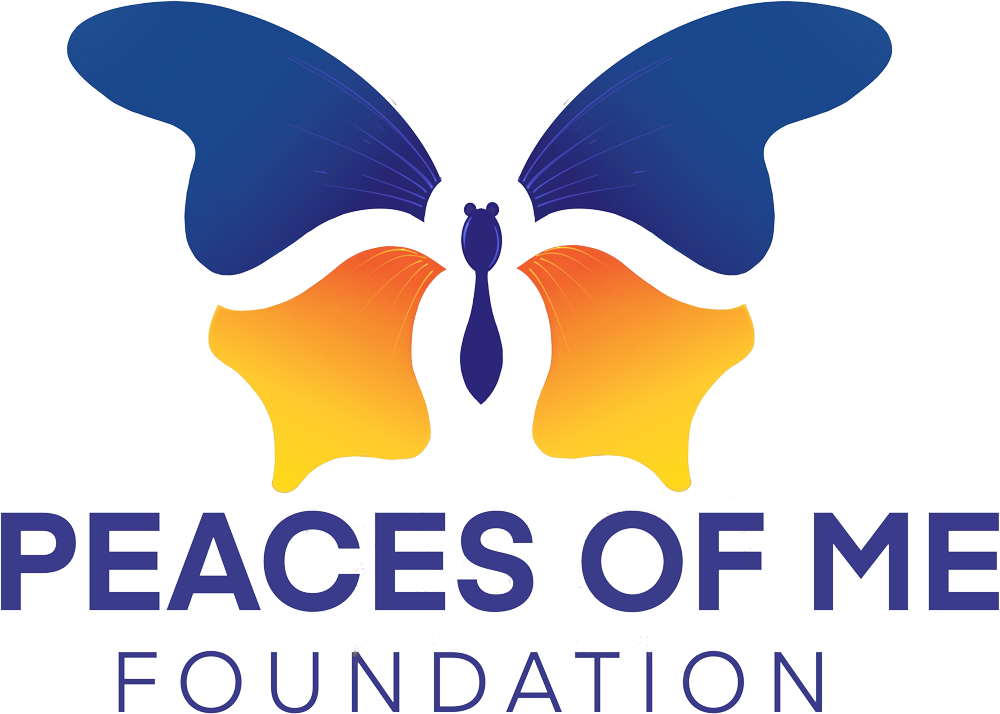At Peaces of Me Foundation, we dream of creating a world in which everyone can thrive. Although this goal is laudable, it is also a bit abstract. What would such a world look like, and how can we get there?
These are questions that will take a series of articles in order to fully unpack. For now, let’s briefly explore authentic inclusion, which is the theme of our work. It is at the core of everything we aim to accomplish.
In order for this aspiration to become reality, the following elements must be in place:
1. We are fully human. The ghosts of eugenics and forced sterilization echo in recent history. During the height of the COVID-19 pandemic, there were even instances involving rationing of care and alleged euthanasia targeted toward individuals with disabilities, based on the erroneous assumption that our quality of life is sub-standard. In less flagrant circumstances, extreme measures that place the patient at risk are pursued because of similar myths surrounding disability and quality of life. Every solution begins with the realization that we are not broken.
2. We belong in the community. The days of “ugly laws” and compelled seclusion have largely passed on. Although this is certainly worth celebrating, much work remains to be done. We need to move beyond the paradigm that says we are here to be served. Like all humans, we rely on one another to thrive in this world; but the stereotype of us exclusively occupying the recipient end of every exchange is quite harmful. We can contribute, and in order for us to achieve full integration, we must be allowed to do so. Removing the barriers that impede us from sharing our gifts and talents benefits all humanity.
3. We can learn. In the United States, a handful of laws guarantee some level of access to education for all students. That said, a strong bias claiming that we are less capable of thriving in school than our non-disabled peers remains. The realities of benefiting from “accommodations” and demonstrating academic aptitude are often treated as mutually exclusive. To be clear, there is no link whatsoever between a sensory or physical disability and intellect. Furthermore, in terms of neurodiversity and other learning differences, the ability to absorb and apply concepts is greatly misunderstood by the public. The fact that I learn differently than you does not make me less intelligent.
4. We can work. At the time of this writing, the unemployment rate for individuals with disabilities hovers somewhere around 85%. As withi he general population, there are those who cannot or choose not to work for a variety of reasons. That said, individuals with such circumstances don’t make up 85% of our population. As with any minority group, we represent an endless array of gifts, talents, and passions. Employment equity means highlighting the task that must be accomplished with less regard for how they are performed. Misconceptions surrounding alternative techniques stifle innovation and lock out talent. Sometimes the best candidate for a position does their job in a way that you as the employer hadn’t thought of, and that’s ok.
5. We can lead. As with any minority group, our experiences shape our perspective in numerous ways. Such is one of the beauties of the burgeoning DEIA movement. Allowing us to bring our whole selves to the table and shine elevates the playing field for everyone. For those of us who would choose to lead, let us offer our brilliance without the added burden of low expectations and outdated tropes. Vanquish the notion that you cant learn anything of value from someone who experiences the world differently, and you will gain something invaluable.
In summary, we occupy several roles. We are learners, we are leaders, and so many other things. Above it all, we are human.
